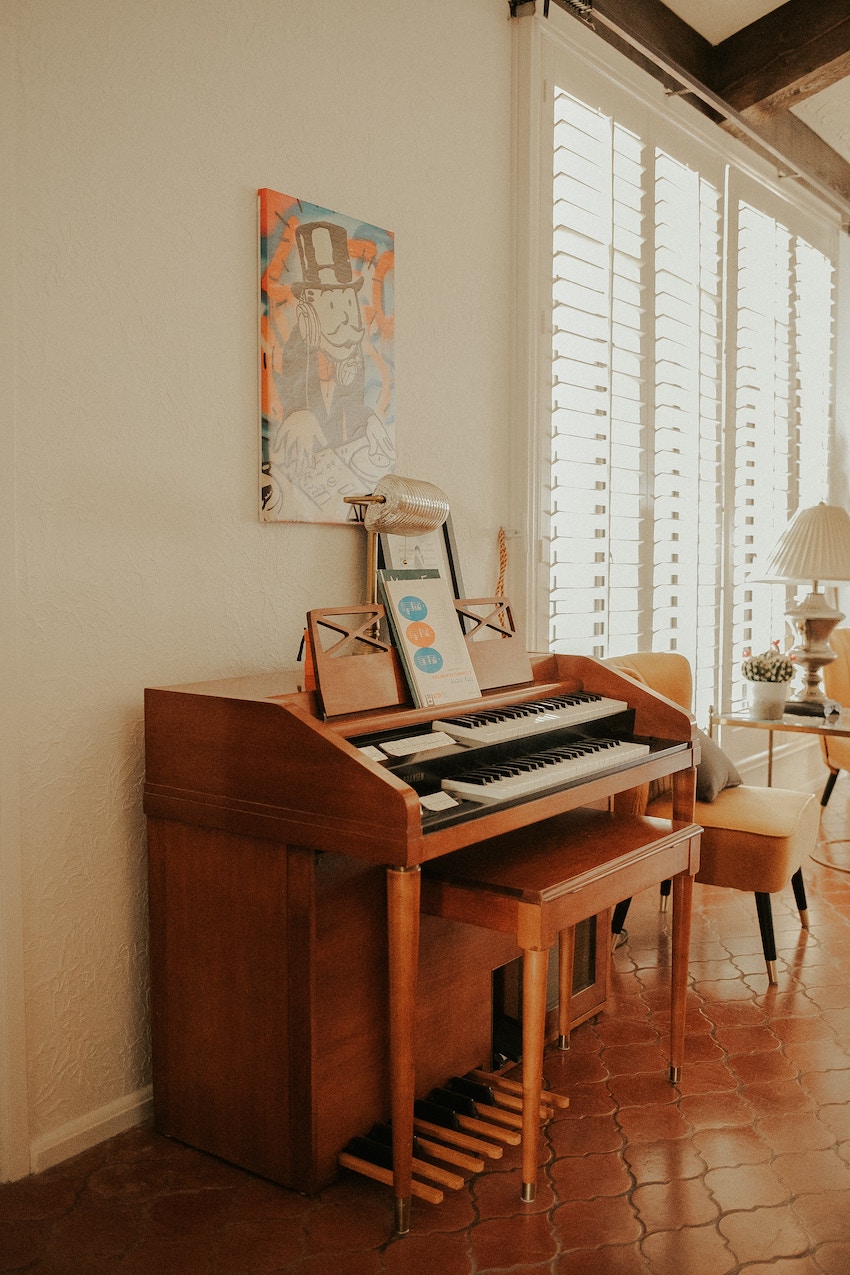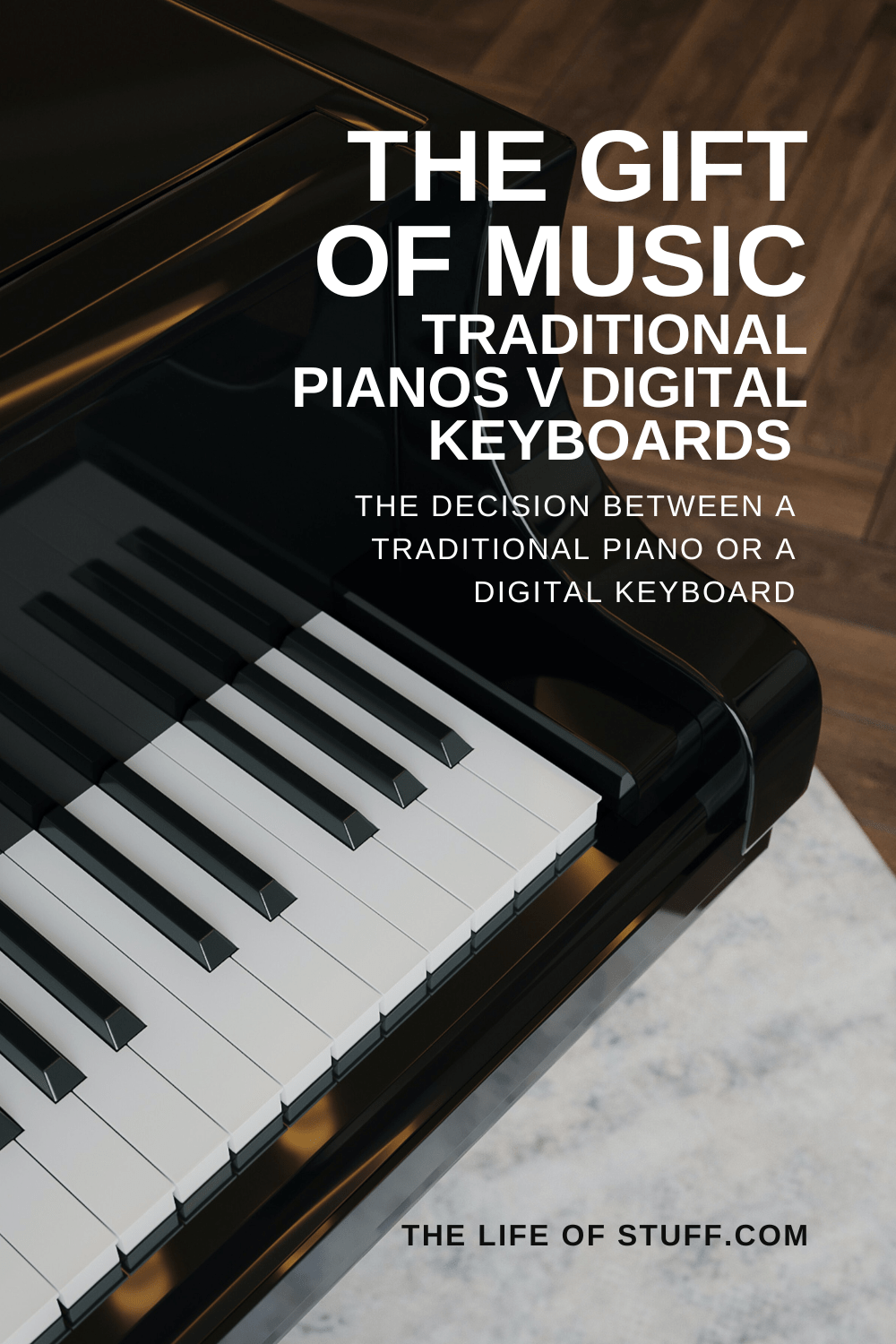The Gift of Music – Traditional Pianos V Digital Keyboards
Delving into the complexities of gifting a musical instrument, the decision between a traditional piano or a digital keyboard is multifaceted and warrants some careful consideration.
Understanding the recipient’s preferences, space constraints, and musical aspirations can significantly influence the choice between these two instruments, making the decision a thoughtful and meaningful one.
In this music gift guide we’ll give you the ‘crescendo’, ‘dynamics’ and ‘decrescendo’ of both traditional pianos and their digital counterparts – the digital keyboard. All in all, it should help you decide which style will be your ‘forte’!
To me, the piano in itself is an orchestra.’
– Cecil Taylor
Further Reading:
- The Ultimate Guide to Music Festivals in Ireland 2023
- The Ultimate Guide to Art & Culture Festivals in Ireland 2023
- 2024 Ultimate Guides COMING SOON
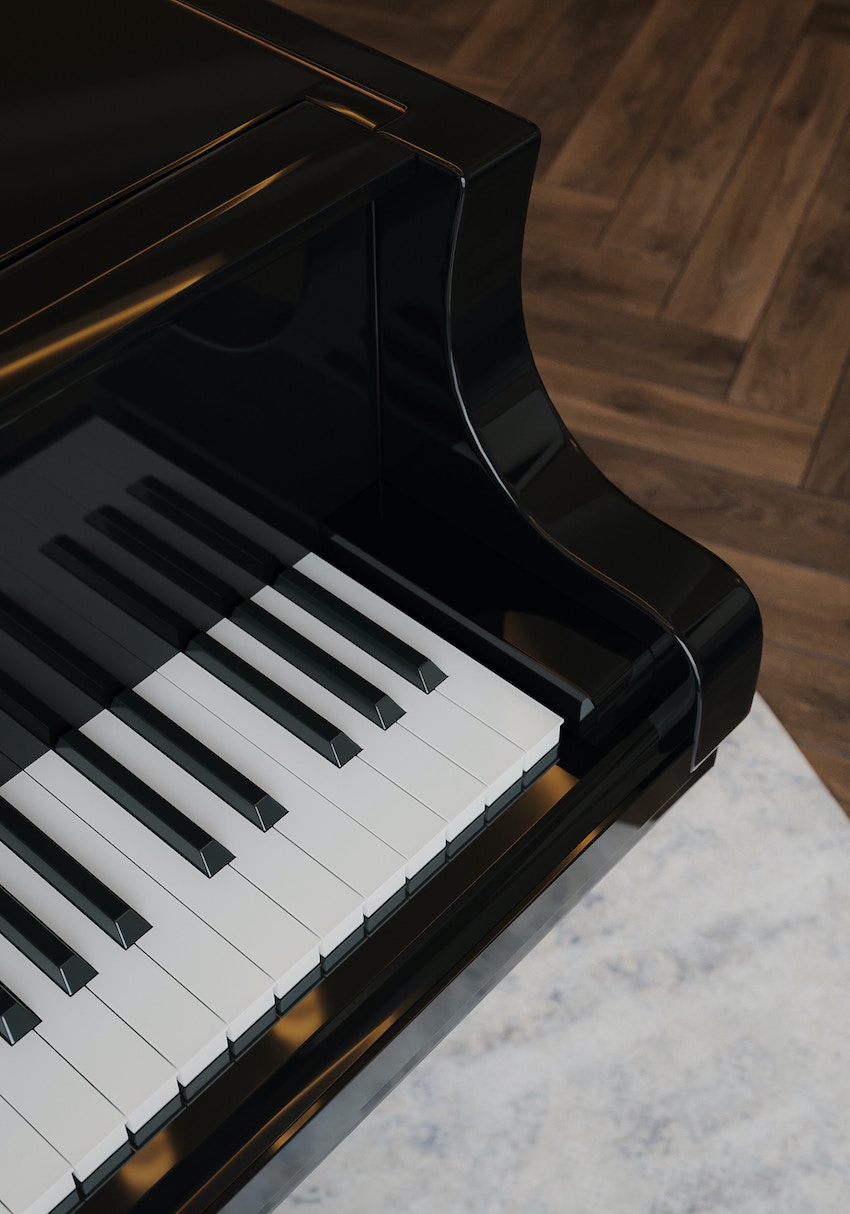
Traditional Pianos V Digital Keyboards
Advancements in Piano Tech and Digital Keyboards
Have you ever wondered how the timeless elegance of piano music has managed to weave itself into the fabric of the digital era?
Piano technology and digital instruments have revolutionised the way we interact with this classic instrument. In the crossroads of tradition and innovation, digital pianos and related technology have opened up a new realm of possibilities for musicians and enthusiasts alike. They bridge the gap between the acoustic richness of the past and the versatile, cutting-edge potential of the future.
This ‘gift of music’ guide will highlight piano technology and digital instruments, and explore how advancements in this field are not just changing the way we play, but also expanding the very horizons of musical creativity.
Traditional Pianos V Digital Keyboards
The Beauty of Traditional Acoustic Pianos
Traditional acoustic pianos are the embodiment of musical heritage, an icon of classical and contemporary music that has withstood the test of time. Each piano, with its 88 keys and thousands of intricate parts, is a masterpiece of acoustic engineering.
The rich, nuanced tones and the dynamic response of the hammers striking the strings resonate with the touch of the performer, creating a direct, organic connection between the artist and their instrument.
Acoustic pianos are not just musical devices but also pieces of art, often serving as the centerpiece of concert halls and living rooms, where they continue to enchant audiences with their powerful and emotive melodies.
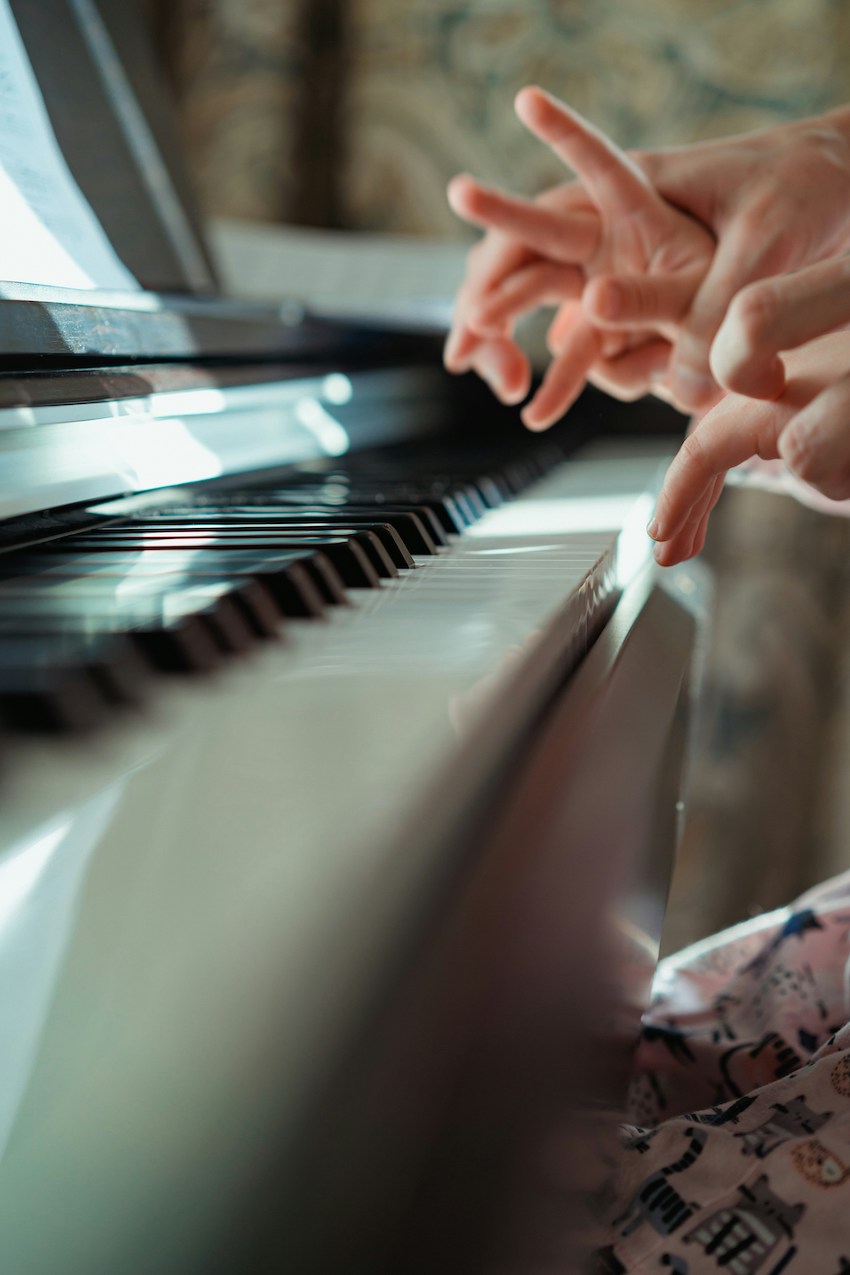
Traditional Pianos V Digital Keyboards
Learning to Play on Digital Pianos and Keyboards
In the realm of digital pianos and keyboards, interactive piano tutorials stand out as a revolutionary learning tool, transforming the way we learn and engage with music. These tutorials offer a hands-on, immersive educational experience, allowing you to learn to play piano at your own pace and in the comfort of their own homes.
With real-time feedback, a vast library of songs, and the ability to track progress, interactive piano tutorials harness the potential of digital technology to make online piano learning more efficient and engaging. They represent a significant leap forward and can go either independently, or hand in hand with traditional methods, providing both beginners and experienced players with an accessible platform to hone their skills and explore the vast world of piano music.

Understanding Digital Keyboards
MIDI (Musical Instrument Digital Interface)
MIDI, which stands for Musical Instrument Digital Interface, is a technical standard that describes a protocol, digital interface, and connectors. This standard allows a wide range of electronic musical instruments, computers, and other related devices to connect and communicate with one another. MIDI conveys messages about notation, pitch, velocity, and control signals for parameters such as volume, vibrato, audio panning, cues, and clock signals that set and synchronize tempo between devices.
Since its introduction in the early 1980s, MIDI has been a fundamental component in the production of electronic music. It enables composers and musicians to create complex music that can be perfectly replicated any number of times. This technology has made it possible for musicians to use a single controller to play and control an entire ensemble of virtual instruments, making it an indispensable tool in modern music production.
Understanding Digital Keyboards
Software Synthesisers and Virtual Pianos
Software synthesisers and virtual pianos represent a remarkable fusion of musical artistry and digital sophistication. These powerful tools emulate the sounds of traditional instruments through digital samples and synthesized emulation, providing musicians with a vast array of sonic possibilities that are both accessible and highly portable.
Virtual pianos, a subset of software synthesisers, focus specifically on replicating the sound and feel of an acoustic piano. They use advanced sampling techniques and physical modeling to recreate the rich, resonant tones of a grand piano with astonishing accuracy. Virtual pianos not only emulate the sound of the keys but also the sympathetic resonance of the strings, the sound of the hammers, and the characteristic noise of the pedals, providing a comprehensive piano playing experience.
Both software synthesisers and virtual pianos have drastically lowered the barrier to entry for music production and performance, allowing artists to have a full orchestra or a grand piano at their fingertips, often without leaving their home studio. These tools have also democratised music education, enabling students to access a wide range of instrument sounds and styles which were previously out of reach due to cost or space constraints.
Photo by Alesan Aboafash
Traditional Pianos V Digital Keyboards
Maintenance and Care for Digital Instruments
Maintenance and care for digital instruments, in comparison to their acoustic counterparts, are generally much simpler and less demanding. Digital pianos, keyboards, and synthesisers do not require tuning, a significant advantage over acoustic pianos which need regular tuning by a professional. The absence of acoustic strings and hammers in digital instruments eliminates a considerable amount of the maintenance work.
The care for digital instruments typically involves keeping the device clean from dust and debris, ensuring that the connections and power sources are properly managed, and avoiding exposure to extreme temperatures or humidity, which can damage the electronic components. Software updates are also a part of digital instrument maintenance, ensuring that the instrument’s firmware and associated software remain up-to-date to fix any bugs and improve functionality.
Traditional Pianos V Digital Keyboards
Comparing Digital and Acoustic Pianos
Digital pianos offer a modern, convenient alternative to acoustic pianos, excelling in versatility and ease of maintenance. They require no tuning, are often more portable, and come with features like headphone connectivity and a variety of sounds.
Acoustic pianos, on the other hand, are prized for their rich, authentic sound and nuanced touch response. They can be more challenging to maintain, needing regular tuning and climate control, but for many musicians, their acoustic properties and the physical connection to the instrument are irreplaceable. Each type serves different needs, and the choice often comes down to personal preference, space, and budget.
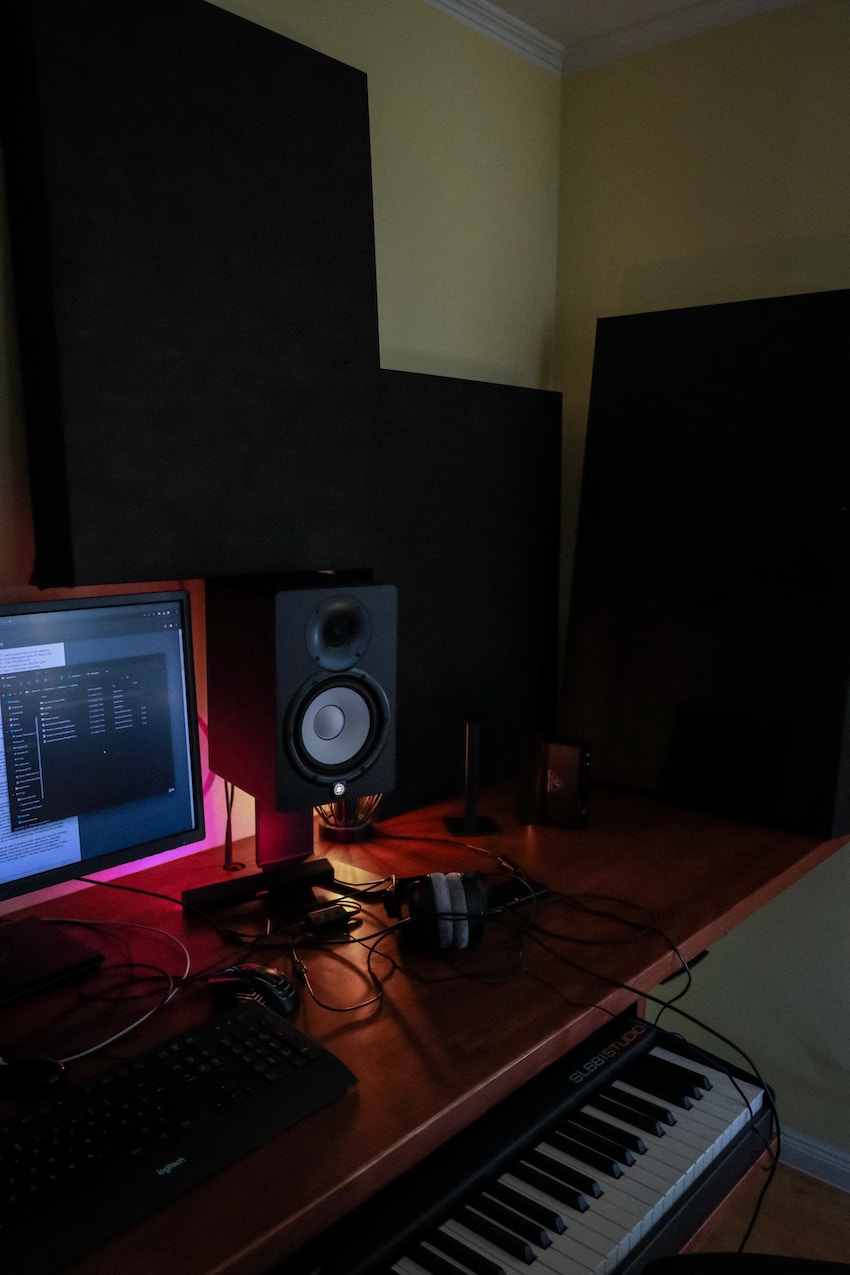
Traditional Pianos V Digital Keyboards
The Decision is Yours
When weighing digital pianos against acoustic pianos, the decision intertwines the practicalities of modern technology with the authenticity of traditional sound.
Digital pianos stand out for their maintenance ease, convenience, and technological features, making them ideal for those seeking a practical and versatile instrument.
Traditional Acoustic pianos, with their unparalleled sound and tactile experience, continue to hold a revered place in the music world.
Ultimately, the choice between digital and acoustic reflects a balance between the evolving landscape of music technology and the timeless allure of acoustic resonance. Whether for practice, performance, or pleasure, the piano, in its many forms, remains an enduring symbol of musical expression.
PIN: Music Gift Guide – Traditional Pianos V Digital Keyboards
Follow The Life of Stuff on Facebook | X | Pinterest | Instagram

